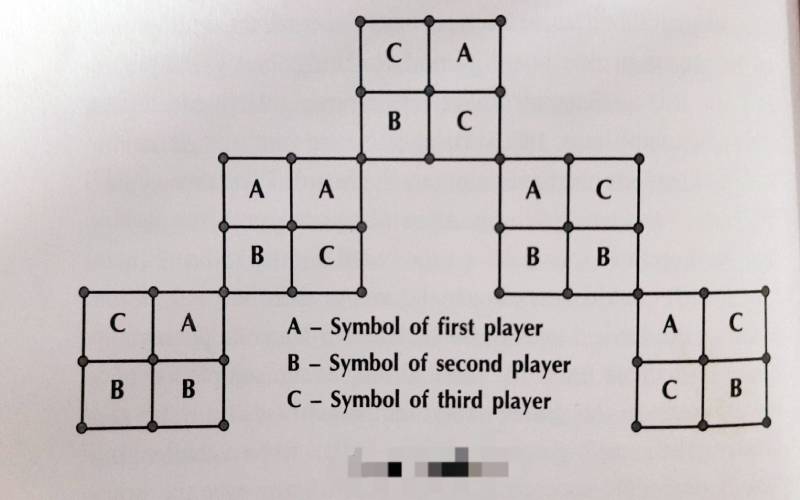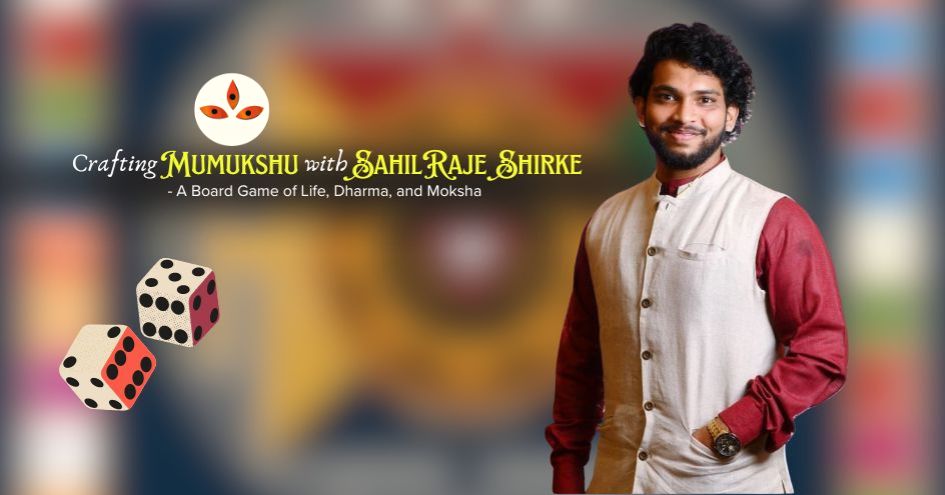
“We would probably remember playing this game not a long time ago. Students of the last bench, during the math class, used to play this game. Not because it involved math and calculative moves, but it was better playing this game...” This game was alive even during the early 21st century. But with the technological advancements, the generations that followed lost interest in what was really interesting. This article tries to showcase how this game was played. “Let us try to go back to our times and recollect the memories of playing this game, even if we do not play it now.”
“I definitely remember the cozenage that people used to do, on just a turn-back at something. Also, the celebrations that followed when a player makes a lucky series. Group of boys and girls crowding around both the players was unavoidable.”
Before this game was adapted to notebooks and papers, it was played on the ground by the rustics (Commonly by children). It was called as Kattam amaitthal vilayaatu (Form-a-Square Game) in Tamil. Typically, this game is played by two or more youngsters. Several dots equidistant from each other are drawn on the floor or on a paper. The players get a chance to connect any of the two dots in their turn.
In the subsequent turns, they form a square or a series of squares on joining the dots. The boxes thus formed are marked by a symbol or sign to represent their identity. The players draw lines in such a fashion that the opponent player does not get a chance to complete the square. But it so happens that, by chance, the opponent wins and gets the series of lucky squares. This makes him the winner of the game.
Players win or lose not alone by sheer luck but also by accurate judgement. Rather than making random lines, the reason must be thought about. Although, initially it happens in random, eventually it gains some thinking to it. There may occur critical moments when the player has to give up few squares to gain the game. This game also comes under the collection of strategic games. Even supposing it is played on a paper, the game can be comfortably played on the ground.
There are no set of written rules for these types of games. In order to have a fair game, the dharma must be upheld by the players. Playing these types of games can benefit children, what the television and video games cannot. Updating our knowledge base relating to technology is important, at the same time abiding to our tradition remains essential. These mind games help in managing our thoughts, enhancing our thinking capabilities, and staying focused at the work we do.
Again, it is up to us to play the game or just reminisce about!

T. R. Surya is the special correspondent of the company. He is an eloquent speaker and compendious writer of English. An avid learner of Sanskrit and Indian scriptures under the guidance of Swami Ganeshaswarupananda and Gita Chaitanya of Arshavidyalaya. His inclination and interests are towards studying Metaphysics and philosophies.
NEXT ARTICLE

Indian parents today are increasingly concerned about their children's limited exposure to the country's rich culture, heritage, and history. Recogniz...

2nd May, 2025In a world increasingly dominated by fleeting digital entertainment, SahilRaje Shirke, an entrepreneur with a deep-rooted passion for Ind...